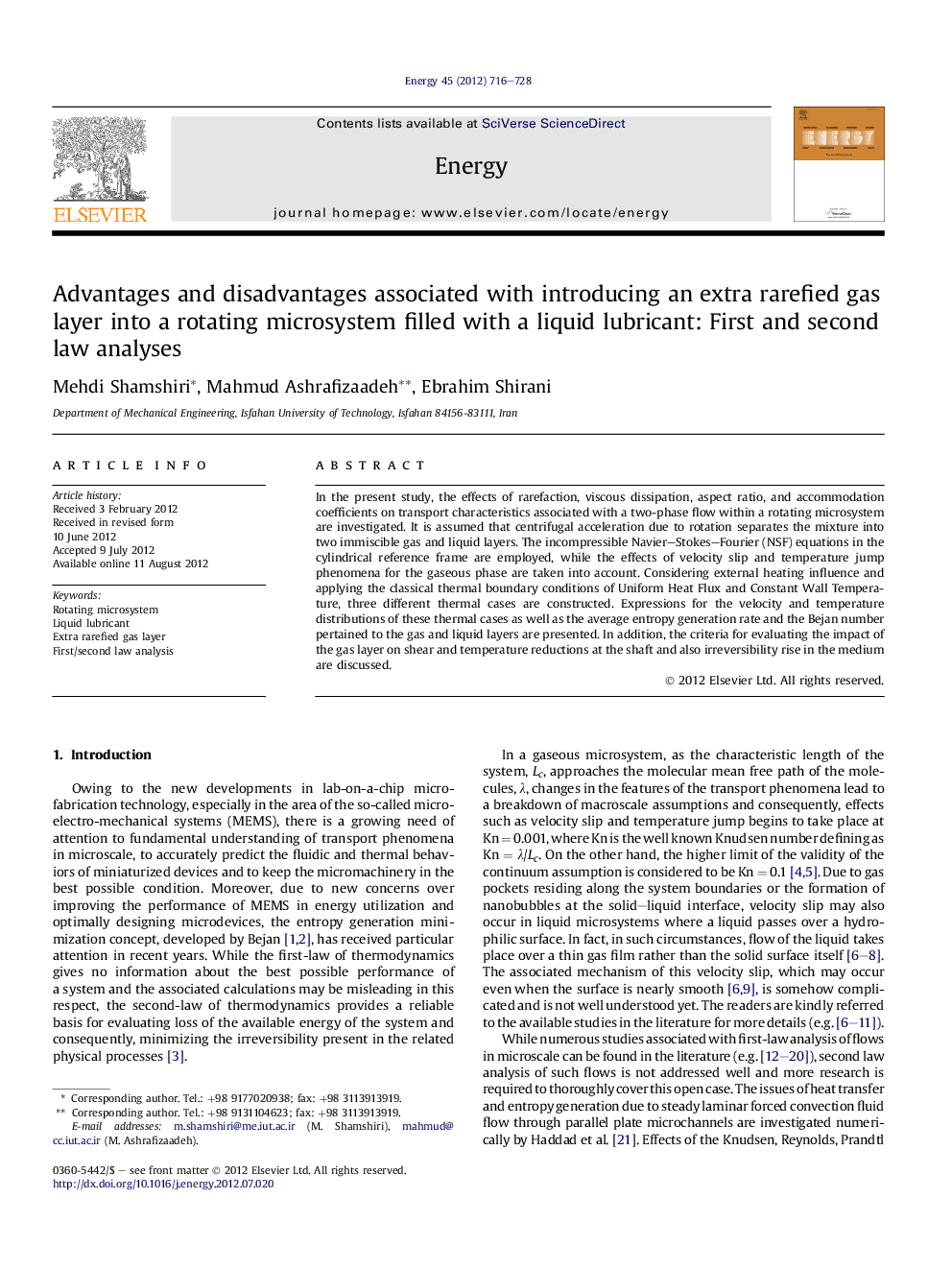| Article ID | Journal | Published Year | Pages | File Type |
|---|---|---|---|---|
| 1733719 | Energy | 2012 | 13 Pages |
In the present study, the effects of rarefaction, viscous dissipation, aspect ratio, and accommodation coefficients on transport characteristics associated with a two-phase flow within a rotating microsystem are investigated. It is assumed that centrifugal acceleration due to rotation separates the mixture into two immiscible gas and liquid layers. The incompressible Navier–Stokes–Fourier (NSF) equations in the cylindrical reference frame are employed, while the effects of velocity slip and temperature jump phenomena for the gaseous phase are taken into account. Considering external heating influence and applying the classical thermal boundary conditions of Uniform Heat Flux and Constant Wall Temperature, three different thermal cases are constructed. Expressions for the velocity and temperature distributions of these thermal cases as well as the average entropy generation rate and the Bejan number pertained to the gas and liquid layers are presented. In addition, the criteria for evaluating the impact of the gas layer on shear and temperature reductions at the shaft and also irreversibility rise in the medium are discussed.
► An immiscible gas–liquid flow in a shaft-housing micro-configuration is studied. ► The investigation includes both first and second law analyses of thermodynamics. ► Analytical solutions of the velocity and temperature distributions are obtained. ► These solutions are employed to carry out the associated second law analysis. ► The impact of the gas layer on overall behavior of the system is then discussed.
